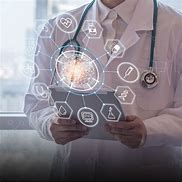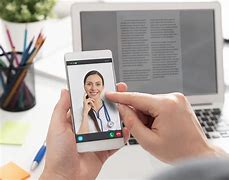Table of Contents
ToggleAlthough Telehealth was being introduced in the past, the COVID-19 pandemic has made it stronger than ever. Due to Telehealth, healthcare providers have been able to connect with their patients through telecommunication technologies such as videoconferencing. More healthcare facilities are now realizing the endless opportunities and the great impact of telehealth, with remote patient monitoring being one of the main reasons why telehealth is being so successful.
What is Remote Patient Monitoring?

Benefits of remote patient monitoring
1. Lower Cost and Higher Efficiencies
A very high cost has been associated with in-person visits to clinics. More specifically, delays such as cleaning exam rooms for every appointment, going through the paper records, and limited room spaces and beds, are some of the reasons that might reduce the number of appointments that providers can have, resulting in lower efficiencies. Remote patient monitoring has significantly reduced the costs, up to 32%, based on Doug Lang, vice president of client growth at Health Recovery Solutions. The reduction of unnecessary hospital admissions is an important outcome of the RPM and can be used as a competitive advantage for clinics.
2. Improves Quality of Care and Decision Making
Due to the integration of AI in telemedicine systems, physicians can now have multiple touch points with their patients. The process becomes more automatic and easier for them to analyze the data, identify trends and change the medication or plan more quickly.
3. Less Exposure to Contagious Diseases and Infections
Due to remote patient monitoring, there is less chance for patients to be unnecessarily exposed to diseases that can lead to serious consequences especially when it comes to older adults, pregnant women, or chronically ill people. This was a great benefit during the COVID-19 outbreak where people were highly concerned about getting exposed to the virus, but also for already exposed patients to transmit the virus to healthcare providers.
Conclusion
AI is the future of healthcare and although there are still many remote patient monitoring programs that do not include AI, it is essential if healthcare facilities wish to offer a better quality of care, while they minimize their costs.
The opportunities of AI are endless and virtual care is now a reality for patients at home.
Who are we at MarkiTech?
MarkiTech is on a mission to innovate healthcare one project at a time for payers, providers, and end-users. We have completed 40+ HIPAA-compliant projects in healthcare. We are experts in AI / Machine learning with 35+ engineers, data scientists & health care experts. We would like to offer FREE digital transformational consultancy via our Fractional CTO team of highly experienced individuals and understand your unique technology challenges and see if there is a potential fit.
Book a free consultation today to see how can help digitally transform your business at https://markitech.ca/our-services/
Follow us on LinkedIn at @Markitech for more updates.
Credits: Intel, Health Recovery Solutions
Contributor: Magdalena Karteris
#remotepatientmonitoring #ArtificialIntelligence #internetofthings #innovation #technology #bigdata #machinelearning #AI #digitalhealth #disruptiveinnovation #Telehealth #Telemedicine #elderlyhealthcare #healthcaresolution


Recent Comments